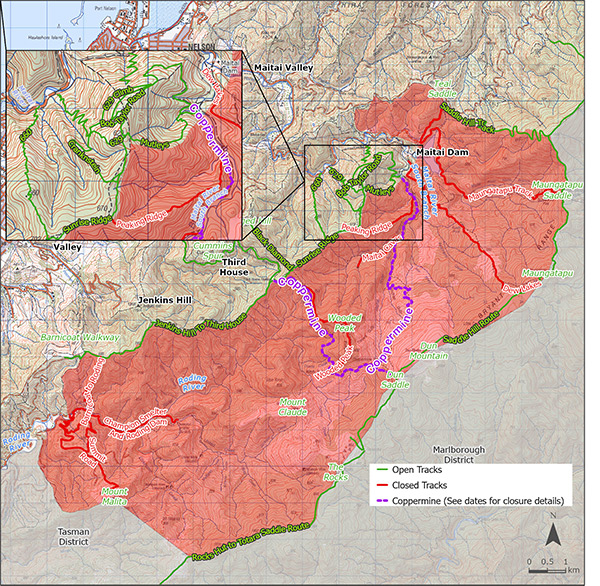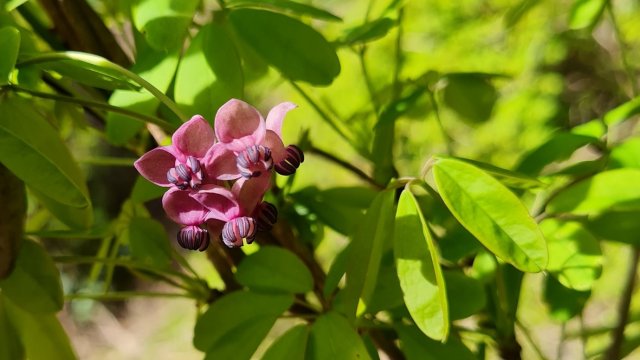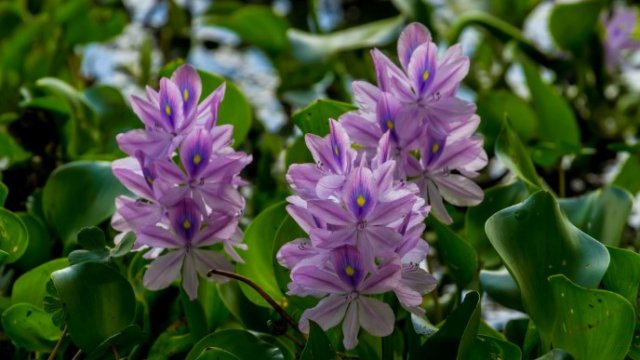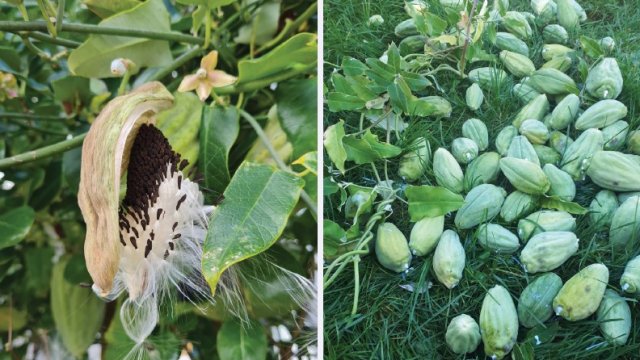Annual pest control operation adapted to provide partial access to popular tracks
30/09/2020 10:54amNelson City Council has made changes to this year’s annual pest control operation in the Maitai and Roding water reserves, in order to balance the need to protect our native forests while maintaining a high level of safe, public access during the school holidays.
Nelson City Council has made changes to this year’s annual pest control operation in the Maitai and Roding water reserves, in order to balance the need to protect our native forests while maintaining a high level of safe, public access during the school holidays.
The cull had been due to take place from 28 September – 9 October this year. The original plan involved the full closure of the Maitai and Roding water reserves, but following feedback from the community, changes have been made to reduce mountain bike track closures where possible to limit disruption to users.
The following popular mountain biking tracks in the Maitai water reserve will no longer be part of the pest control area, so will remain open throughout the school holidays.
- 660
- Fire break
- Smiths Ford
- Bob Taylor Road
- Crankenstein
- Mutleys
- Black Diamond
- Sunrise Ridge
The Coppermine Trail closure will be limited to five days, split across two weeks to allow access in the middle weekend of the school holidays. The track will be closed to the public on 1-2 October, reopened on the weekend, and closed again from 5 - 7 October.
All other tracks in the Maitai water reserve will be closed from 1 – 9 October. This area includes the Maitai Caves track and the Peaking Ridge MTB track.
Click to enlarge: Map of Maitai and Roding water reserves track closures
Warning signage will be in place at trail entrances to give advance notice of the closures.
Group Manager Environmental Management Clare Barton says the pest control operation is a vital part of Council’s strategy to protect native forest.
“Goats and deer graze on young native seedlings, which can damage or kill them and prevent the forest regenerating naturally. Our approach to this is two-pronged. For most of the year, pest numbers are limited by recreational hunters through a hunting permit system, but we also need to use professional hunters to ensure the entire 4200 hectare reserve is covered.
“We recognise closures like this can be an inconvenience to the public, and we have to also consider how important it is that we protect native forest from pest species.”
The areas covered by the programme need special protection as they are home to threatened plants associated with the limestone geology in the area, and to plants found only in the Dun Mountain Mineral Belt ecosystem.
The pest control operation is carried out annually, at approximately the same time each year, as part of the Nelson Nature programme. Previous years’ operations had not taken place over the school holidays, but due to contractor availability, alternative dates were limited this year.
“School holidays are a busy time,” says Barton.
“However, recreation in these reserves is popular at all times and usage increases as the days get longer, and we head into summer.”





